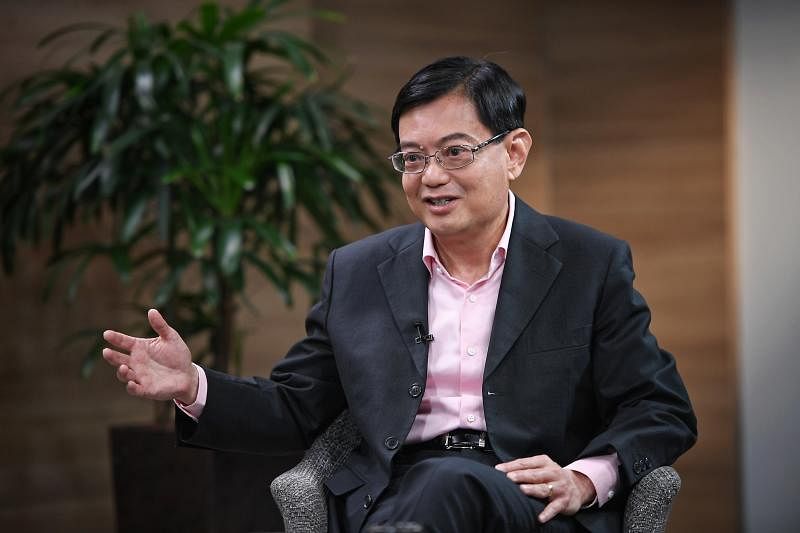Finance Ministers have never interfered in Temasek and GIC's investments: Heng Swee Keat
Sign up now: Get ST's newsletters delivered to your inbox

Deputy Prime Minister Heng Swee Keat said that he and former finance ministers did not interfere in what countries or sectors to invest in.
ST PHOTO: CHONG JUN LIANG
SINGAPORE - As Finance Minister, he has never once interfered in investment decisions taken by the national sovereign wealth funds, Temasek Holdings and GIC, as doing so would lose him the authority of holding them accountable for their performance, Deputy Prime Minister Heng Swee Keat said in an interview with a Swiss newspaper published Friday (May 17).
Mr Heng told Neue Zürcher Zeitung his predecessors also did not interfere in what countries or sectors to invest in.
"Because if I do that, I lose the authority to hold them accountable for (their) performance," he said, noting that his role as stated in Singapore's Constitution holds him accountable to Parliament for how the funds do.
"If the Board and CEO are not doing a good job, I have the duty to remove them and to change, but I do not micro-manage how they do it."
He said that such an approach, along with an openness to foreign investments, has led to multinational firms having the confidence to invest here.
The DPM was in Switzerland to attend the St Gallen Symposium, an annual conference bringing together young people, key decision-makers and thought leaders from all around the world, for discussions on economic, political, and social issues.
The interview with NZZ covered a broad range of topics, from Singapore's housing system and the 99-year lease policy, to the similarities in Singapore and Switzerland's development models.
Mr Heng was responding to a question on how the Singapore government prevents crony capitalism from taking root here, given how the People's Action Party (PAP) has been in power since independence.
He said the PAP has regularly delivered on its promises to Singaporeans, and that is why it has won every election.
The government has held regular elections - the law states that each term of government cannot last over five years - which are always competitive, free and fair, said Mr Heng.
"The fact that the ruling party has been able to win elections is not because we have been suppressing," he said. "The fact is that we have delivered on what we promised, and that we have won the trust and confidence of Singaporeans."
Mr Heng stressed, however, that the Singapore government does not claim to have the answers to every problem.
"In fact, many of us, myself included, have been on record saying that the government cannot possibly have all the answers to all of the problems and that is why we have to mobilise our society to resolve many of these issues," he said.
Explaining the 99-year lease policy, Mr Heng said home ownership is an important part of nation building, as a sense of togetherness is forged when people own their homes, and feel they have a stake in the country.
The 99-year lease policy is "rational" if one believes, or hopes that Singapore will last forever. With the whole of the island just over 700 sq km in size, there is a need to renew its land assets.
"If we sell land as freehold and that the moment you own it, you own in perpetuity, what it means is that children who are born in the future will never have any home or be able to buy anything," said Mr Heng.
The Deputy Prime Minister also highlighted similarities in the development models of Singapore and Switzerland, both of which he called "multilingual, multiracial and multicultural".
While both countries are small in comparison to China, US and other major powers, they are able to flourish by maintaining their neutrality on the world stage and abiding by global institutions and rules.
Mr Heng said it was important to "focus on the big picture and to abide by a rules-based multilateral order", and also support international institutions like the World Trade Organisation, the United Nations, International Monetary Fund and the World Bank.
"These are important rules that smaller countries must subscribe to. And we hope that not just the smaller countries that subscribe to these, but bigger countries to. Then we have a rules-based system."


